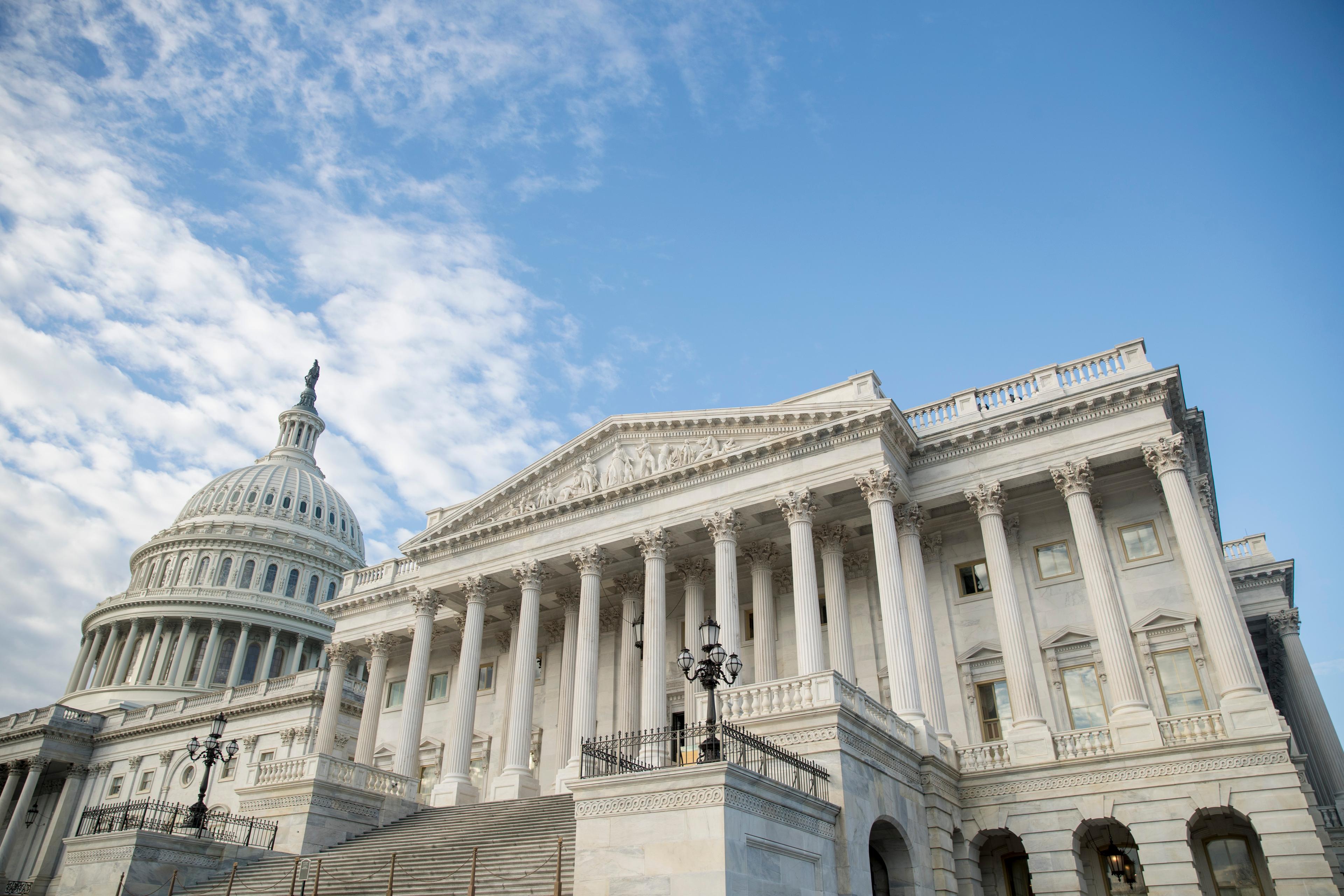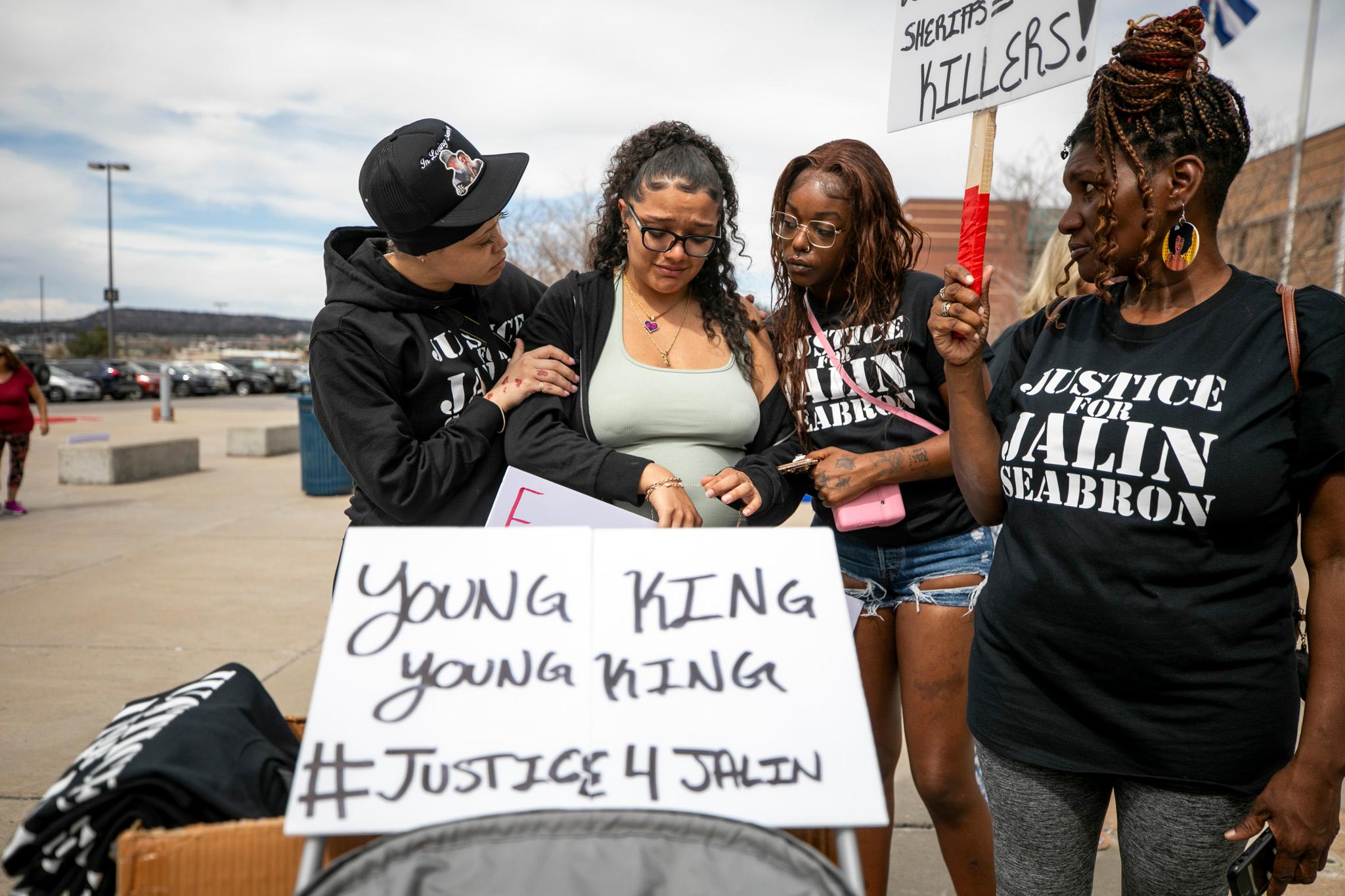
With just over two weeks left before the government runs out of money, Congress is no closer to an agreement to avoid a government shutdown.
The Senate has made some headway, opening debate for a “minibus” package of appropriations bills that have strong bipartisan support. It was made up of the Military Construction-VA spending bill, the Agriculture spending bill and Transportation-HUD spending bill.
“I think that the best thing we can do in the Senate is try to pass the appropriations bills in a big bipartisan way and send a signal to the House of Representatives that the American people expect Republicans and Democrats to work together to fund the government,” said Democratic Sen. Michael Bennet.
Still, after six weeks away, the House returned only to promptly scrap plans to vote on a defense appropriations bill after Republican leaders failed to get enough votes from their caucus to clear a procedural hurdle. So far, the House has only passed one of the 12 appropriations bills, putting it in a weak negotiating position compared to the Senate.
House Speaker Kevin McCarthy on Thursday acknowledged the week was not going as he had planned. He told Punchbowl News, “I got a small group of members who don't want to vote for (continuing resolution), don't want to vote for individual bills and don't want to vote for an (omnibus). I’m not quite sure what they want.”
GOP Rep. Doug Lamborn said it’s time for some people in his caucus to get their act together. “We need to vote for something positive, we can’t just be against everything out there because then we won’t be the ones making the decisions.”
Instead, McCarthy may have to look to Democrats to cut a deal for the votes he needs.
On the House floor Thursday, Democratic Rep. Joe Neguse hammered home how close the government is to shutting down. “Sixteen days,” he said repeatedly.
“For those Americans watching, they know that we have been here before. They have seen how this movie… ends,” he said. “If Republicans are in control of the House, there is one thing they can count on, and that is that Republicans will shut the government down.”
Many House Republicans acknowledge there isn’t enough time to pass all the appropriations bills before Sept. 30. That means, one way or another, Congress will need to pass a Continuing Resolution to fund the government for a period of time or head into a government shutdown.
Still, even that could be a challenge for McCarthy. On Tuesday, members of the far-right House Freedom Caucus, including Western Slope Rep. Lauren Boebert, said they would not support a CR to fund the government past September 30, unless it also includes changes to policy related to border enforcement and ending “woke” policies at the Pentagon and Department of Justice.
“I am not coming up here to just be a wallflower and sit by and do things as usual,” Boebert said. Still, those are Republican priorities that have passed on a largely partisan basis in the House and would not be able to survive the Democratic-controlled Senate.
Democratic Rep. Jason Crow said he’s not feeling great about where things stand currently because there is no guidance or clarity from Republicans about what’s next. He entered office during the 2019 government shutdown.
“This is not the way to lead a country, and certainly not the way to govern,” he said. “I don't even think Speaker McCarthy knows at this point what's going to happen. We're going hour to hour and day by day at this point, in large part because Speaker McCarthy has bargained away all of his power to a radical, extreme right group of members who have no idea what they're doing.”
Freshman Democratic Rep. Yadira Caraveo is also not optimistic. She thinks some Republicans are “really just playing a game of brinksmanship to essentially shut the government down.”
Caraveo noted that many of the Republicans holding up votes on appropriations bills say they’re fiscally conservative. “It's going to cost a lot of money to screech everything to a halt and then start it right back up. The federal government and the federal budget, it's like a gigantic cruise ship. It doesn't just turn or stop on a dime.”
Dean of the delegation, Democratic Rep. Diana DeGette, who has been through three shutdowns, believes there’s a simple solution this time: McCarthy should honor the spending agreement he and a large majority of Republicans voted for in May, as part of the debt ceiling agreement.
“It’s actually really clear what the path out is, which is we all agree to the budget deal we agreed to in the Spring. It passed the House and the Senate and got signed into law.”
But DeGette added that would leave a political problem for McCarthy with his right flank, which opposed the deal and has the power to challenge him for his job.
Most members in the House, as well as the Senate, expect to take up a CR in the coming weeks. But how that would look, how long it would fund the government, what would be included and which chamber would start the process are all still up in the air.
McCarthy said he thinks it won’t be a “clean” CR, meaning some other policy changes could be included, but did not indicate if those would be what hard right members of his caucus have asked for or something else.
Crow, for example, said he’d like to see President Biden’s supplemental request for more aid to Ukraine, disaster relief and border funding included. However, some hard right Republicans are opposed to additional Ukraine aid.
Lamborn is hopeful that there is something in the CR that Republicans could point to as a legislative victory, like border security.
GOP Rep. Ken Buck does think McCarthy can get a CR passed to avoid a shutdown, but only with support from across the aisle. “I think they need Democrat votes to get a CR passed. There's too many promises to too many groups that can't be fulfilled all at the same time. And so I think ultimately we will have Democrats joining Kevin and some Republicans to pass a CR,” he predicted.
Democratic Sen. John Hickenlooper sounded a hopeful note that moderation will win out in the end. “Congress isn't going to be able to do everything that everyone wants, but I'm still optimistic that we'll get something worked out.
And while Crow knows better to make predictions when it comes to the budget process, he was willing to offer one.
“Rarely do things of this nature happen before the last-minute deadline in Washington,” he said.
That deadline is fast approaching.









